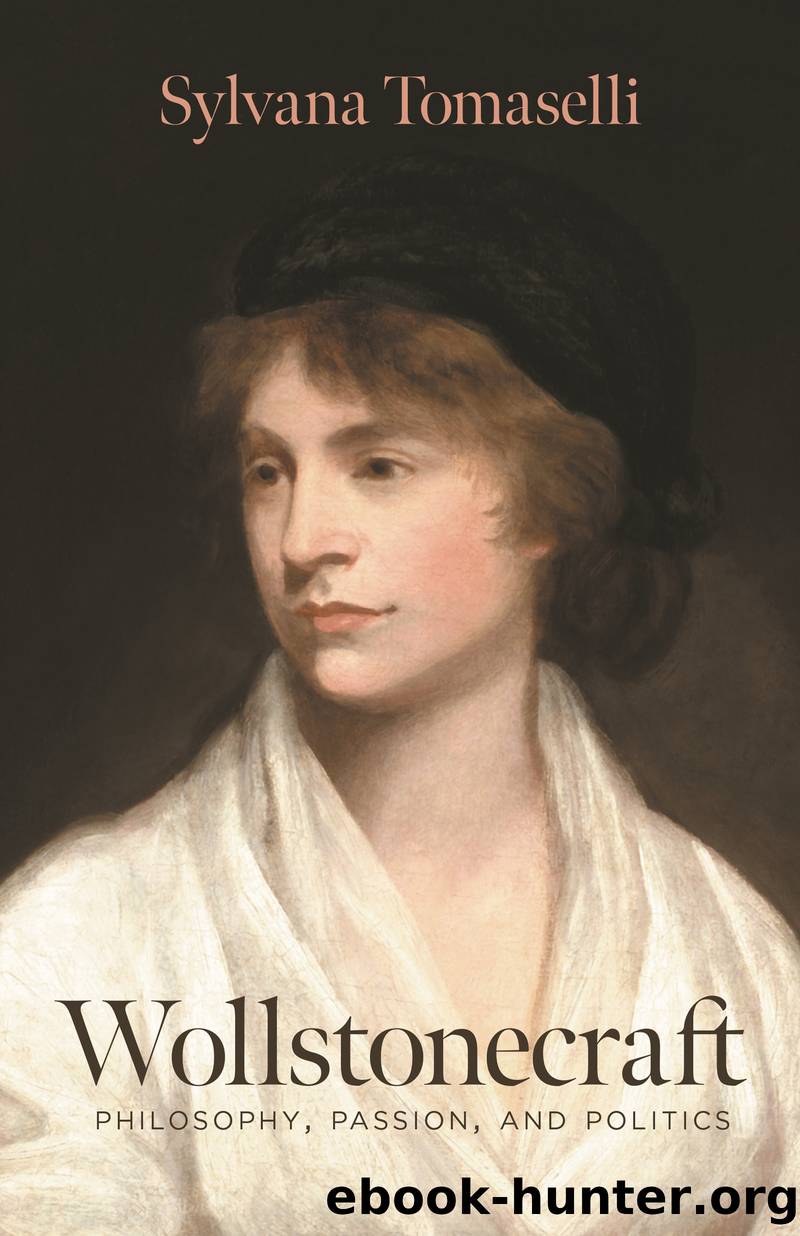Wollstonecraft by Sylvana Tomaselli

Author:Sylvana Tomaselli
Language: eng
Format: epub
Publisher: Princeton University Press
Published: 2020-10-07T00:00:00+00:00
By contrast to Rousseau, Wollstonecraft continued, she was â[f]irmly persuaded that no evil exists in the world that God did not design to take place,â and she built this âbelief on the perfection of God.â12
Diverging forms of the belief in the perfectibility of man were widely held in the eighteenth century, including by Rousseau and Godwin. As she made clear, Wollstonecraftâs was grounded in a Providential view of human nature. Though she was not to reiterate the point as she did so explicitly in A Vindication of the Rights of Woman, there is no reason to think that her trust in perfectibility was stubbed out in the latter part of her life, though the horrors she was to witness in France under the Terror made it falter. As suggested previously, she also appears to have retained her faith until the end of her life, though it too may have wavered at certain low points in her life. Where Rousseau had gone wrong, she contended, was to see only the evils attendant to every stage of society, without thinking of âtracing the gigantic mischief up to arbitrary power, up to hereditary distinctions that clash with the mental superiority that naturally raises a man above his fellows.â13 Having asserted this, Wollstonecraft went on to decry standing armies, the navy, and the clergy. Any profession that required subordination to rank as opposed to ability was necessarily âhighly injurious to morality.â14 Given that she made a point of noting their indolence, she might also have added that any profession that allowed for periods of idleness, which standing armies and the navy invariably did, had a negative effect not only on the men themselves but also on the inhabitants, especially the women, of the communities in which they happened to be stationed. We will follow these thoughts further in this chapter. Insofar as her disagreement with Rousseau went, she concluded the first chapter of her second Vindication with the following: âhad Rousseau mounted one step higher in his investigation, or could his eye have pierced through the foggy atmosphere, which he almost disdained to breathe, his active mind would have darted forward to contemplate the perfection of man in the establishment of true civilization, instead of taking his ferocious flight back to the night of sensual ignorance.â15 As Rousseau never claimed that such a return was either possible or desirable, though he was widely caricatured as doing so, not least by Voltaire, and as he endeavored to establish the conditions under which man could fulfil his nature in Du Contrat Social (1762), Wollstonecraft can hardly be said to be either a fair or attentive reader of his work, certainly not of that particular work, as Sapiro has rightly noted.16 Fortunately, accurate Rousseauian scholarship was not Wollstonecraftâs business. She was a combatant and sharpened her blade opportunistically. This is not to suggest that the disagreements she had with Rousseau, as she took him to be or presented him as being, were not genuine. However much she,
Download
This site does not store any files on its server. We only index and link to content provided by other sites. Please contact the content providers to delete copyright contents if any and email us, we'll remove relevant links or contents immediately.
I Have Something to Say by John Bowe(3283)
What Happened to You? by Oprah Winfrey(1473)
Doesn't Hurt to Ask by Trey Gowdy(1400)
Einstein: His Life and Universe by Walter Isaacson(1315)
Solutions and Other Problems by Allie Brosh(1029)
Disloyal: A Memoir by Michael Cohen(1021)
American Dreams by Unknown(860)
Don't Call it a Cult by Sarah Berman(838)
Infinite Circle by Bernie Glassman(829)
Group by Christie Tate(810)
Home for the Soul by Sara Bird(807)
Talk of the Ton by unknow(734)
The Silent Cry by Cathy Glass(681)
Total F*cking Godhead by Corbin Reiff(663)
Severed by John Gilmore(652)
Searching for Family and Traditions at the French Table by Carole Bumpus(647)
The Battle of Mogadishu by Matt Eversmann & Dan Schilling(611)
Before & Laughter by Jimmy Carr(602)
Things I Wish I Knew Before My Mom Died by Ty Alexander(599)
